Sunday, April 25, 2010
MARKET MAKERS AND TRUSTED ADVISORS
By DENNIS K. BERMAN
Staff Reporter of THE WALL STREET JOURNAL
March 10, 2005
Doctors have the millennia-old Hippocratic Oath. Pharmacists, mathematicians and even football coaches all have codes of ethics.
Not investment bankers.
Now, a few of the best-known names on Wall Street, along with some lawyers and academics, think it is time for these creators of mergers and stock offerings to explore the possibility of their own code. It would be the kind that, like the Hippocratic Oath, might be taught in schools, framed and hung on office walls and called upon when arriving at life's ethical crossroads.
The code of ethics is one of the most provocative ideas to come out of a broader project and new book called "Restoring Trust in American Business," compiled by a group convened by the American Academy of Arts and Sciences.
The group, which includes noted investment banker Felix Rohatyn, mergers lawyer Marty Lipton and New York Stock Exchange Chairman John Reed, raises a number of proposals for bankers, lawyers, regulators and directors. Their hope is that over time, these suggestions might improve what the book calls "a disturbing breakdown of values in corporate America."
Investment banking is a vexing area to police. Bankers sit in the crucible of the economy: doling out loans; hammering out contracts; and counseling companies on the sensitive topics of mergers and acquisitions, among other things.
It is in these areas that ethical lapses can occur, with bankers using confidential information from one client to benefit another, or failing to fully outline the drawbacks of a particular transaction to guarantee a big payday. Many on Wall Street say the vast majority of bankers are ethical ones, but nearly all will admit they can lose or win fees based on how far they are willing to go.
Given the million of dollars in profits that also can be personally earned from one or two banking transactions, the "pressure on behavior is sometimes too great to bear," writes Gerald Rosenfeld, chief executive officer of investment bank Rothschild North America, in the book.
Instead of trying to create a rule for every ethical permutation, a potential code "should have basic principles with respect to who you're accountable to, and what your priorities are between yourself, your client and your regulators," says Mr. Rohatyn, the former managing director of investment bank Lazard who now heads his own firm, Rohatyn Associates.
"It's really something that has to be embedded in an organization all the way up and down," he says. "Ultimately, it has to be instinctive."
When asked, some of Wall Street's leading investment banks say they welcome the idea of a code. For now, the list of supporters includes Citigroup, Credit Suisse Group's Credit Suisse First Boston, Goldman Sachs Group, J.P. Morgan Chase, Lehman Brothers Holdings, Merrill Lynch and Morgan Stanley.
Since it is now simply a vague recommendation, exactly what it would contain remains to be seen. But a code could include principles for handling conflicts of interest, behavioral guidelines for dealing with clients and competitors, and some recognition of a banker's duty to society at large.
Writing such a code could face an uphill fight. Deep in the trenches, some Wall Street bankers displayed an instinctive skepticism.
After all, these bankers say, individual ethics codes already are in place inside each of the banks. A code was created and famously ignored inside energy trader Enron Corp. prior to its collapse. Some bankers variously described the idea as a "cynical plan to avoid more regulation," a "public-relations ploy" and "an open invitation to more lawsuits."
All these are typical objections to ethics codes, say people who have studied and devised them.
"A code of ethics is always a public-relations ploy," says Michael Davis, senior fellow at the Center for Study of Ethics in the Profession at the Illinois Institute of Technology. "The question is whether it is only a public-relations ploy."
Mr. Davis points out that a professional ethics code is supposed to be different than a company code. A professional code can, in effect, be used to stiffen the backbone of people who want to do the right thing when their company demands otherwise.
A fear of fresh lawsuits is nonetheless a very real one. A code of ethics wouldn't be legally binding. Yet there is the potential that it could be viewed as a "professional custom" by the courts, say securities lawyers. When that custom isn't followed, bankers could be exposed to still greater liabilities than the myriad ones they already face, these lawyers say.
John P. Coffey, an attorney who has recently helped recover more than $3 billion from Wall Street firms for their involvement in underwriting the bonds of WorldCom Inc. (now MCI Inc.), said he wouldn't rule out using an ethics code against bankers alleged to have violated it. Failing to adopt a code for fear of lawsuits is "like saying we shouldn't have speed limits, because the police may enforce them," Mr. Coffey says.
Gathering consensus for a code will thus require sensitive word choices. David Miller, who heads Yale University's Center for Faith and Culture, recommended that much of the code be based on the verb "strive." One such statement, for example, might say that "Bankers should strive to best represent their clients' interests above their own."
Says Mr. Miller: "To use the words 'is' or 'will' is at its worst arrogant, and at its best a denial of reality. There is more street credibility if it is written with aspirational language."
Subscribe to:
Post Comments (Atom)









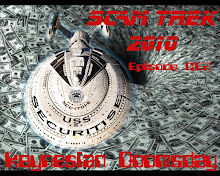



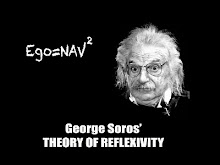

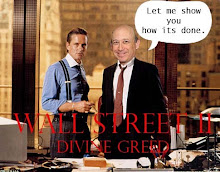




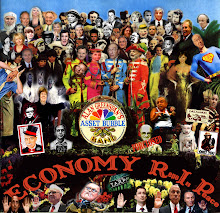



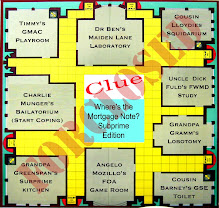





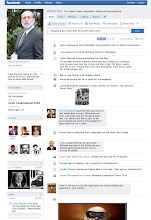
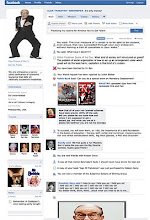
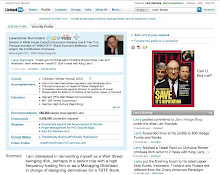




.jpg)



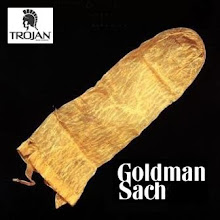



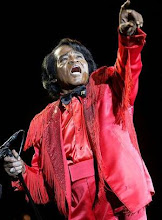




No comments:
Post a Comment